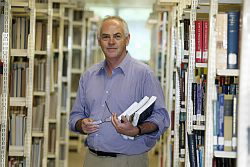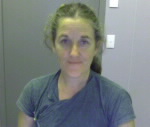Indigenous Legal Needs Project About Research Team
Research Team
- Future Students
- JCU Global Experience
- International Students
- Student experience
- Open Day
- How to apply
- Pathways to university
- Living on Campus
- Courses
- Publications
- Mature students
- Scholarships
- Entry options
- JCU Families
- JCU Heroes Programs
- Aboriginal and Torres Strait Islander in Marine Science
- Elite Athletes
- Defence
- AI@JCU
- AALL
- Current Students
- Student Ambassador Program
- New students
- JCU Orientation
- LearnJCU
- Placements
- EDQS
- Unicare Centre and Unicampus Kids
- Graduation
- Off-Campus Students
- JCU Job Ready
- Safety and Wellbeing
- JCU Prizes
- Professional Experience Placement
- Employability Edge
- Art of Academic Writing
- Art of Academic Editing
- Careers and Employability
- Student Equity and Wellbeing
- Career Ready Plan
- Careers at JCU
- Partners and Community
- Alumni
- International partnerships
- About JCU
- Reputation and Experience
- Chancellery
- Governance
- Celebrating 50 Years
- Academy
- Indigenous Engagement
- Education Division
- Graduate Research School
- Research Division
- Research and Innovation Services
- CASE
- College of Business, Law and Governance
- College of Healthcare Sciences
- College of Medicine and Dentistry
- College of Science and Engineering
- Anthropological Laboratory for Tropical Audiovisual Research (ALTAR)
- Anton Breinl Research Centre
- Agriculture Technology and Adoption Centre (AgTAC)
- Advanced Analytical Centre
- AMHHEC
- Aquaculture Solutions
- AMHRA
- JCU Digital Wellbeing Group
- ARCSTA
- Lions Marine Research Trust
- Australian Tropical Herbarium
- Australian Quantum & Classical Transport Physics Group
- Boating and Diving
- Clinical Psychedelic Research Lab
- Centre for Tropical Biosecurity
- Centre for Tropical Bioinformatics and Molecular Biology
- CITBA
- CMT
- Centre for Disaster Solutions
- CSTFA
- Cyclone Testing Station
- The Centre for Disaster Studies
- Daintree Rainforest Observatory
- Fletcherview
- JCU Eduquarium
- JCU Turtle Health Research
- MARF
- Orpheus
- TESS
- JCU Ideas Lab
- CNL
- TARL
- eResearch
- Indigenous Education and Research Centre
- Past Course and Subject Handbooks
- Estate
- Work Health and Safety
- Staff
- Discover Nature at JCU
- Cyber Security Hub
- Association of Australian University Secretaries
- Services and Resources Division
- Environmental Research Complex [ERC]
- Foundation for Australian Literary Studies
- Gender Equity at JCU
- Give to JCU
- Indigenous Legal Needs Project
- Inherent Requirements
- IsoTropics Lab
- IT Services
- JCU Webinars
- JCU Events
- JCU Motorsports
- JCU Sport
- Library
- Mabo Decision: 30 years on
- Marine Geophysics Laboratory
- Office of the Vice Chancellor and President
- Outstanding Alumni
- Policy
- PAHL
- Queensland Research Centre for Peripheral Vascular Disease
- Rapid Assessment Unit
- RDIM
- Researcher Development Portal
- Roderick Centre for Australian Literature and Creative Writing
- Contextual Science for Tropical Coastal Ecosystems
- State of the Tropics
- Strategic Procurement
- Student profiles
- SWIRLnet
- TREAD
- TropEco for Staff and Students
- TUDLab
- VAVS Home
- WHOCC for Vector-borne & NTDs
- Media
- Copyright and Terms of Use
- Australian Institute of Tropical Health & Medicine
- JCU Respect
- Pay review
Queries in relation to the Indigenous Legal Needs Project should be directed, at first instance, to Fiona Allison at JCU on (07) 40421886 or by email at fiona.allison@jcu.edu.au
Chief Investigators
Chris Cunneen

Chris Cunneen is a leading Australian and international criminologist. Prior to commencing at JCU he held the NewSouth Global Chair in Criminology at the University of New South Wales from 2006-2010. Previously, Professor Cunneen taught criminology at the University of Sydney Law School from 1990-2005. He was Director of the Institute of Criminology, University of Sydney from 1999-2005.
Professor Cunneen has conducted research for a number of Indigenous and human rights organisations, including the Australian Human Rights Commission. He was a consultant to the National Inquiry into the Separation of Aboriginal and Torres Strait Islander Children from Their Families. He has also worked widely with government agencies and law reform bodies on issues relating to juvenile justice, policing and corrections. He is currently a chief investigator on a large ARC Discovery grant titled the Australian Prison Project. He has published a number of books and is a member of the editorial board of a number of leading international journals.
Larissa Behrendt

Professor Larissa Behrendt is a Eualeyai/Kamillaroi woman. She is the Professor of Law and Director of Research at the Jumbunna Indigenous House of Learning at the University of Technology, Sydney. She is admitted to the Supreme Court of the ACT and NSW as a barrister.
Larissa is a Land Commissioner at the Land and Environment Court and the Alternate Chair of the Serious Offenders Review Board, a member of the Academy of Social Sciences of Australia and a founding member of the Australian Academy of Law. She is the Chair of the Humanities and Creative Arts panel of the Australian Research Council College of Experts.
She is the author of several books on Indigenous legal issues. She won the 2002 David Uniapon Award and a 2005 Commonwealth Writers Prize for her novel Home. Her latest novel, Legacy, is due for release in October this year. Larissa is a Board Member of the Museum of Contemporary Art, a board member of Tranby Aboriginal College and a Director of the Bangarra Dance Theatre. She was named as 2009 NAIDOC Person of the Year.
Melanie Schwartz

Melanie Schwartz is a Lecturer in Law. She teaches criminal law and into the Indigenous programs in the JCU, including the pre-law program and the winter school. She convenes the criminal justice stream in the Diploma of Humanities.
Melanie is also CI on two ARC Discovery grants: the Youth Punishment Project explores our attitudes to the punishment of young people, and the Australian Justice Reinvestment Project investigates the potential for a justice reinvestment approach to reducing incarcerating levels to the Australian context.
In 2009 Melanie was awarded the UNSW Vice Chancellor’s Award for Teaching Excellence and in 2010 was highly commended in the LexisNexis-ALTA Awards for Innovation in the Teaching of Law (Australasia).
Senior Research Officer & Project Manager
Fiona Allison

Fiona Allison is currently Project Manager and Senior Researcher for the Indigenous Legal Needs Project and is based at JCU in Cairns. Fiona has also worked, and continues to work, as a research consultant on other Indigenous-justice related research projects with Chris Cunneen, and is a Senior Researcher for the Australian Prisons Project.
Prior to working on the Indigenous Legal Needs Project, Fiona has practiced as a solicitor in the community legal sector in both the Northern Territory and NSW, has taught at Tranby Aboriginal College in Sydney and worked at the Australian Human Rights Commission.
PhD Candidates
Fiona Allison
This study will consider how effectively the legislative and administrative regimes surrounding anti-discrimination law introduced from the 1970s in Australia are working to protect Aboriginal peoples’ human rights. On its face, anti-discrimination law offers to all Australians a means of fighting against discriminatory actions and policy. Why then are Aboriginal people still far from able to enjoy equal rights alongside other Australians? The study will consider what progress has actually been made for Aboriginal people through introduction of these regimes. The nature and efficacy of direct action instigated by Aboriginal people prior to their introduction will also be explored. Problems relating to Aboriginal access to justice in this area will be examined, in particular.